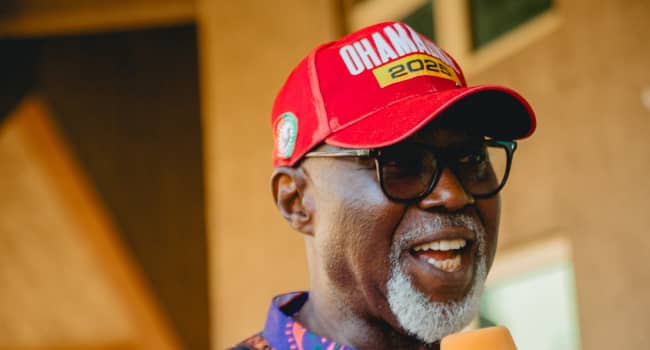George Moghalu, the Labour Party (LP) candidate in the Anambra State governorship election, has explained why he failed to win in his own polling unit, attributing his loss to widespread vote-buying by other candidates.

In an interview on Channels Television’s Sunday Politics, Moghalu said he chose not to engage in vote-buying because he could not match the amounts being offered by rival parties. He added that many voters in his unit were financially vulnerable and thus easily swayed by money.
“Yes, because I couldn’t afford how much that was being paid. I couldn’t pay, and I refused to pay, I refused to get involved,” he said. “They had too much money to buy votes, and what do you expect my people to do? They fell because a lot of them are poor.”
Moghalu specifically pointed to the ruling All Progressives Grand Alliance (APGA) as being primarily responsible for the alleged vote-buying. He claimed that several party agents, some already arrested for such activities, were seen wearing APGA tags. “Some of them are on record as having been seen purchasing votes. There’s even a commissioner who was caught on camera buying votes in my particular constituency,” he alleged.

He further argued that the election results did not reflect the true will of the people, insisting that he would have won had the contest been free of financial influence.
Professor Chukwuma Soludo of APGA was declared the winner of the governorship election, securing a second term after a landslide victory across all 21 local government areas. He polled 422,664 votes, defeating Nicholas Ukachukwu of the All Progressives Congress (APC), who scored 99,445 votes, and Paul Chukwuma of the Young Progressives Party (YPP), who came third with 37,753 votes.
Other candidates included John Nwosu of the African Democratic Congress (ADC) with 8,208 votes, George Moghalu of the Labour Party (LP) with 10,576 votes, and Jude Ezenwafor of the Peoples Democratic Party (PDP) with 1,401 votes.

Moghalu’s remarks have reignited discussions on the influence of vote-buying in elections and its impact on the credibility of electoral outcomes.



